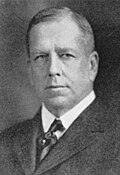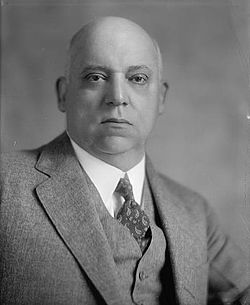| |||||||||||||||||
| |||||||||||||||||
 County results Sackett: 50–60% 60–70% 70–80% 80–90% >90% Stanley: 50–60% 60–70% 70–80% 80–90% | |||||||||||||||||
| |||||||||||||||||
| Elections in Kentucky |
|---|
 |
The 1924 United States Senate election in Kentucky took place on November 4, 1924. Incumbent Democratic Senator Augustus Owsley Stanley ran for re-election to a second term, but was defeated by Republican Frederic M. Sackett.
Contents
- Primary elections
- Democratic primary
- Republican primary
- General election
- Candidates 3
- Results 3
- See also
- Notes
- References
This was the first election that Republicans won this seat, and the first time that Republicans simultaneously held both Senate seats.



